Thanks to the combined efforts of the NSW Biodiversity Conservation Trust and Landcare NSW under the Private Land Conservation Matters Project, the Yass Area Network of Landcare Groups (YAN) recently hosted a dynamic workshop titled A Bird in the Hand, Data in the App. This interactive day brought together community members passionate about the natural world to learn how to use citizen science apps and identify local flora and fauna.
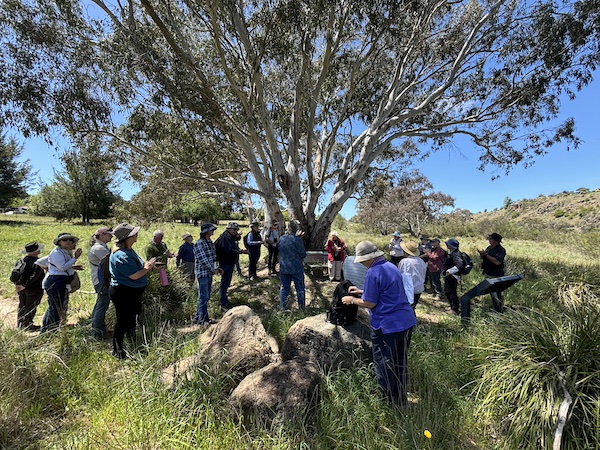
The day kicked off with introductions to two key citizen science apps, Nature Mapr and Birdata. These tools are streamlining how data is gathered, empowering everyday people to make meaningful contributions to scientific knowledge. Participants were shown how to log data on local biodiversity through these apps, underscoring the significant role that citizen science plays in monitoring and preserving our environment.
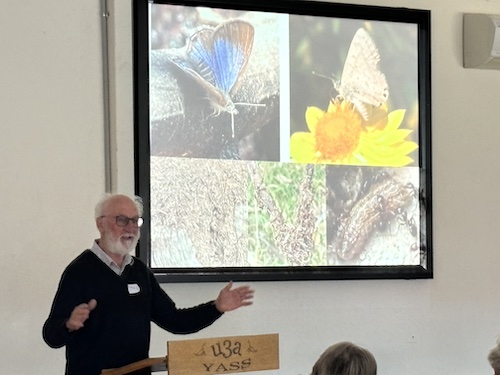
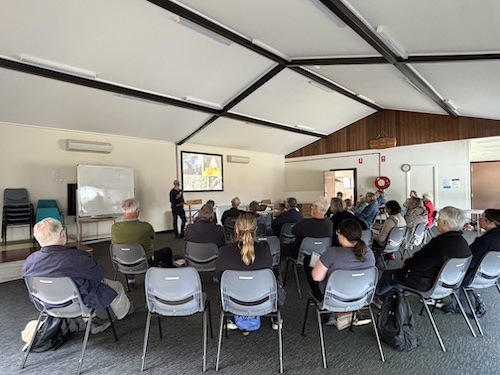
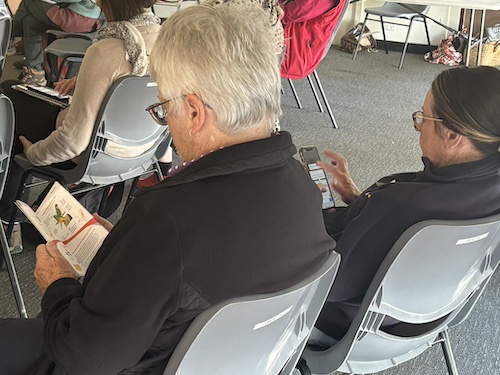
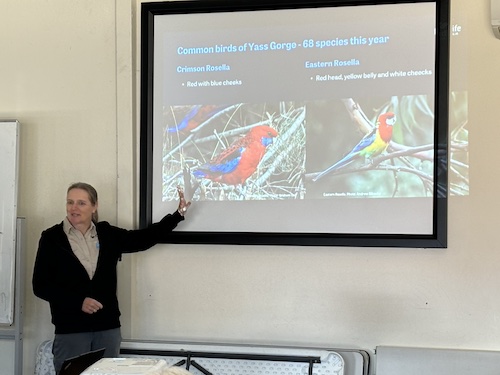
Dr. Michael Mulvaney provided an inspiring overview of recent discoveries in the Southern Tablelands region, highlighting the power of collective data. He shared insights into the role that citizen scientists have played in tracking the endangered Gang-gang cockatoo’s breeding sites and identifying their food sources. Contributions like these not only add to scientific knowledge but directly influence conservation efforts for species preservation. Additionally, the data submitted through these platforms has allowed Landcare groups and local councils to manage weeds more effectively by spotting them early. This targeted action has saved resources by preventing the spread of invasive species.
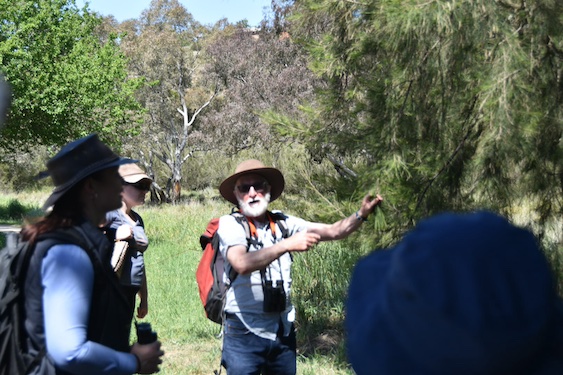
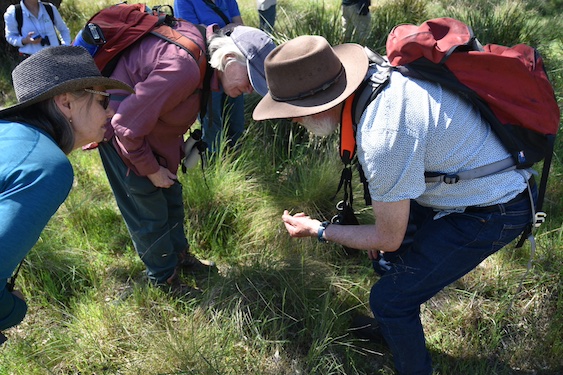
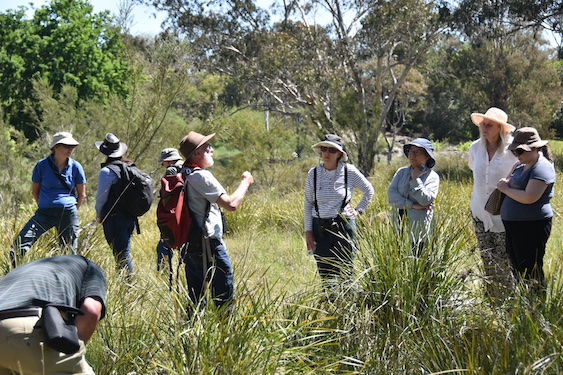
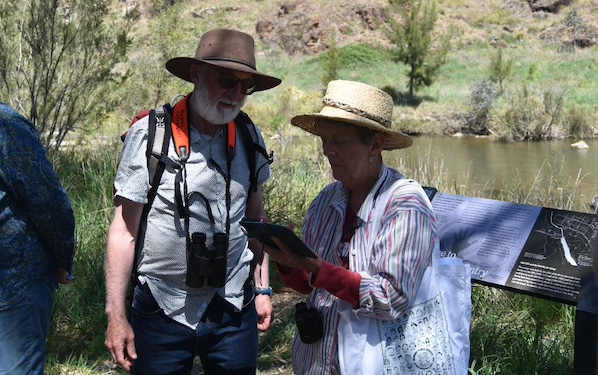
In a practical bird identification session, Dr. Margot Oorebeek guided participants through spotting some of the common birds found in the Yass region, including visitors to the Yass Gorge like the Rufous Whistler, known for its unique “falling leaf” call pattern. Margot emphasised that bird identification is as much about listening as it is about observing, giving attendees a sense of confidence to contribute to ongoing bird surveys by BirdLife Australia, including the Birds on Farms project.
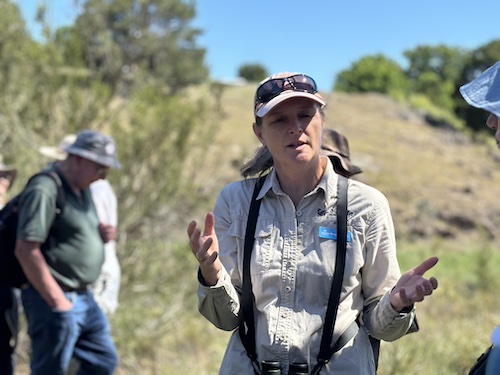
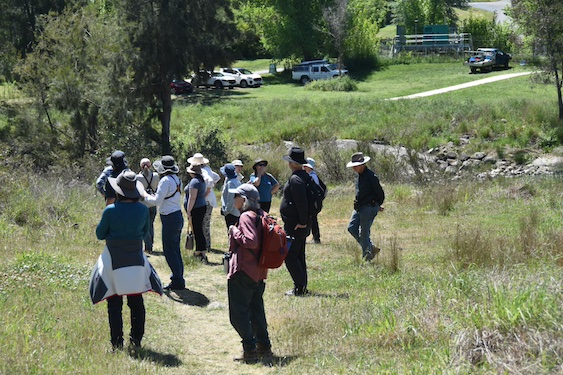
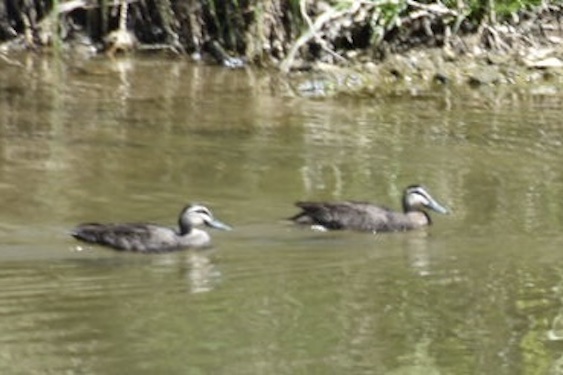
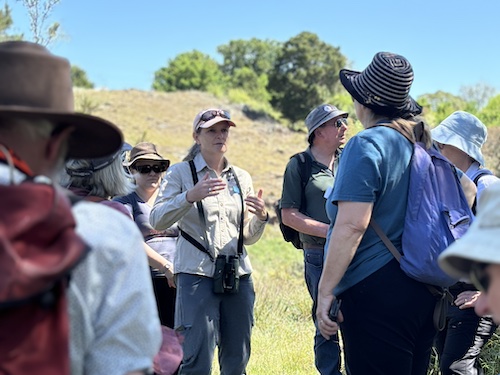
After a morning of learning, the group headed to Yass Gorge for a picnic lunch and a chance to put their new skills into practice. The peaceful environment of the Gorge offered a perfect backdrop to connect with nature and explore the region’s rich biodiversity. The group was introduced to the work that the Friends of Yass Gorge have been undertaking to restore and protect this unique are in the heart of Yass.
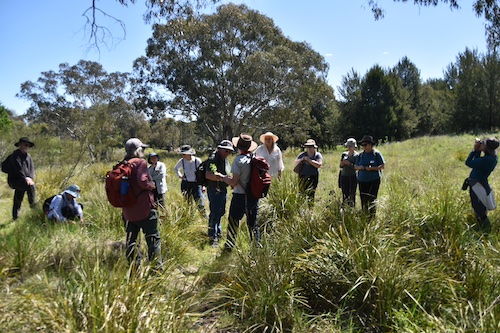
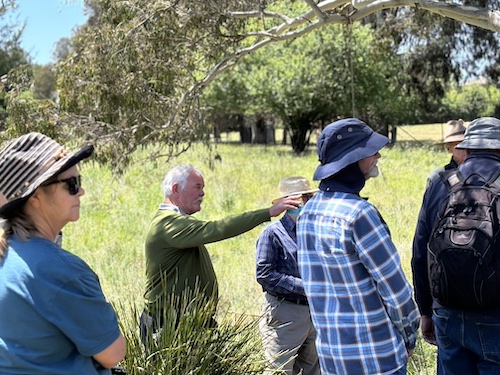
Under the shade of a magnificent river red gum, Pam Bell shared the cultural heritage of Yass Gorge, also known as "the Cliffs" by the Ngunnawal people. She spoke about the Gorge’s significance and how it connects with other culturally important areas, tracing the pathways the Ngunnawal people traditionally travelled across Country. This added a profound dimension to the day, fostering a sense of connection between ecological conservation and cultural respect.
Throughout the afternoon, participants exchanged tips on identifying plants, birds, and insects, finding delight in the abundance of life that thrives within the Gorge. The enthusiasm for citizen science and the desire to contribute to the community’s understanding of local biodiversity was evident.
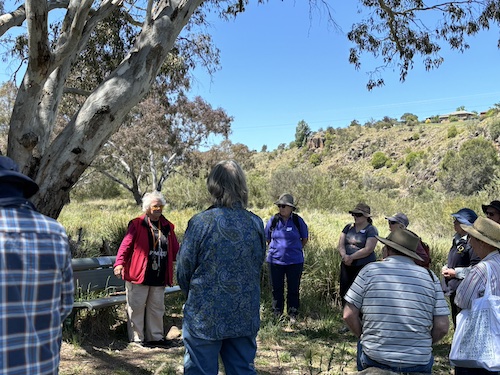
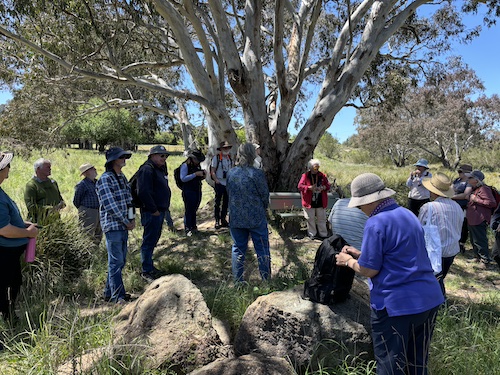
For those inspired by the workshop, there is an ongoing opportunity to join the Friends of Yass Gorge and help preserve this treasured part of Yass. If you’re interested in joining the community efforts, please reach out to Sarah, [email protected].
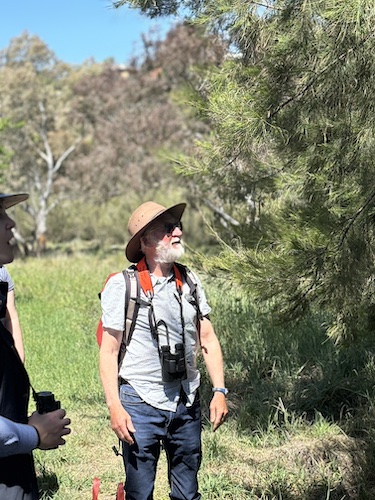
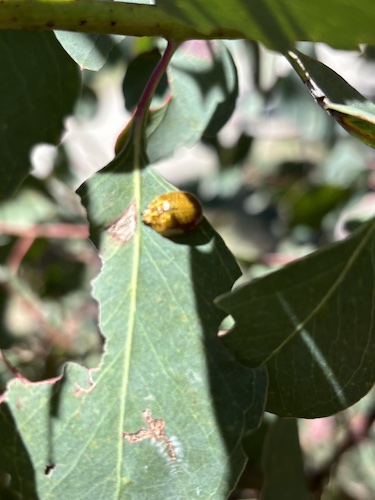
Whether you're a seasoned naturalist or a curious newcomer, your contributions are invaluable to fostering a deeper understanding of Yass’s unique environment.
Written by Sarah McGrath, YAN Coordinator

